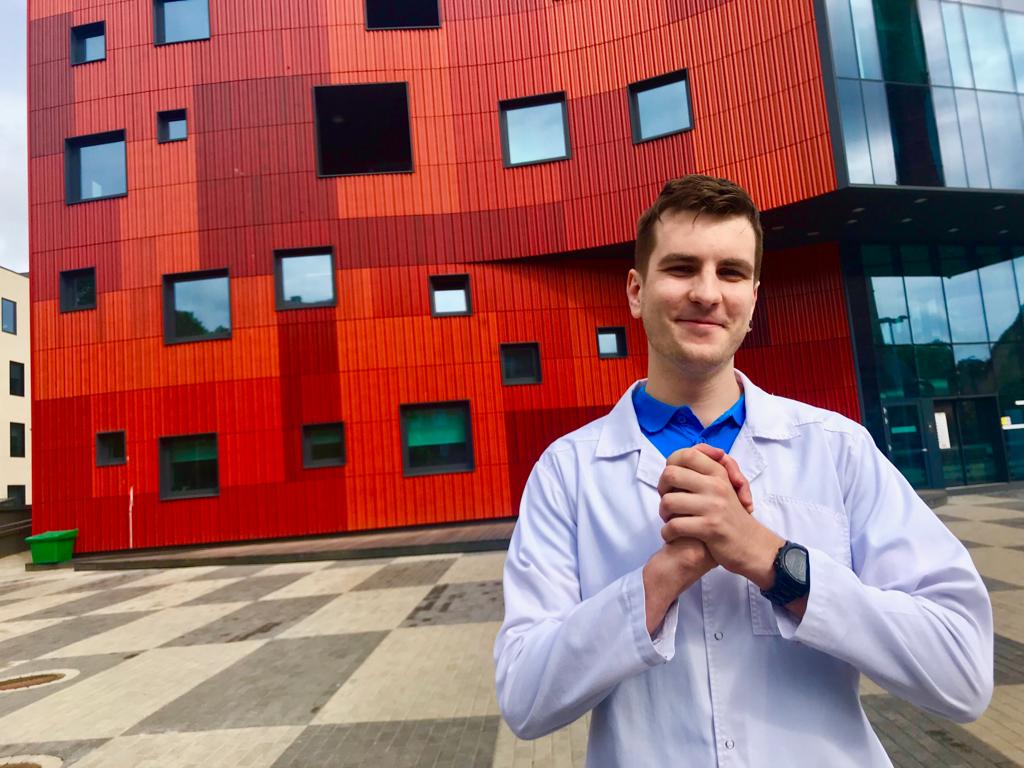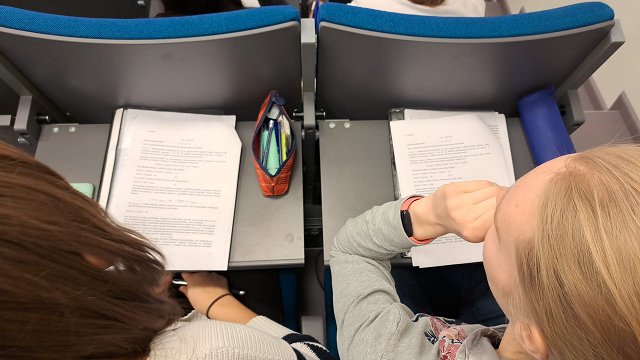One of this year's Rīga Stradiņš University graduates is Guntis Balodis. He describes finding out his exam results as a massive victory: “It's hard to describe. When the day of the exam arrives and you pass everything, you get the feeling of lifting the Stanley cup into the air […] it feels like something very great has been done, but at the same time it feels like nothing, just a single chapter in a book that you read and then continue on your way.”
Balodis said that the six year course is indeed long and arduous.
“Those first years were the most difficult. The first and second year were terribly hard. […] With time, it was easier to keep myself motivated, because the hardest bit was already past. Then I only had to survive the remaining four years. […] I don't know much about others, but there were some who realized that they no longer want to be doctors. They'd gone through the basics and understood that this was not for them, and they just left. In our group – we motivate each other.”
Guntis plans to spend the next year travelling. Upon returning to Latvia, however, he inclines to “continue on the medical path. The idea is to be a family doctor, as my mother is a family doctor and she wishes to pass on the practice on to me. And that's really the ideal path to continue on here in Latvia.”
Guntis remarks that the medical career is underrated – the pay is too low and the work load is too intense. “Well, my own opinion is that we have quite an underrated profile. Life is the most valuable thing we have. The person who is able to help you is, as it were, in God's position, deciding your fate. It's not that we need to be the kings and earn more than others for it, but we are very underrated when it comes to wages, and it's a little annoying. It's unpleasant, but otherwise, if the person is doing what he likes doing and that happens to be medicine, then you can survive in Latvia.”
The fact that you can survive as a practitioner is evidence by other doctors, who are working despite difficulties. Guntis remarks that after six years of studying, he found it difficult to decide what to specialize in. He says that he does not plan on leaving Latvia, although he empathizes with those young doctors who decide to leave the country.
“If a person is supported by his family, then everything is fine. But there are those who want to start from scratch, and they'll be looking for the easiest way, and the easiest way is perhaps to go abroad. And that's the temptation – the money,” Guntis said.
He admits he had had thoughts of going away: “I have put a lot of thought into this. The main thing was to understand which path I'd like to take. The idea of becoming a family doctor popped into mind only two and a half years ago. Before that, I was completely lost. I wanted to be a microbiologist. Now, it is no longer possible to become a microbiologist in Latvia, because there's too many of them in the first place and there aren't that many fellowships on offer. The only option, if this was my calling, was to go abroad.”
Ina Mežiņa-Mamajeva, director of studies at the Faculty of Medicine of the University of Latvia, said that medicine graduates are always on demand: “These students, graduates, meet with no obstacles in the job market. To say that there's a lack of opportunities wouldn't be fair. The issue of wages has always been relevant, but if the student – the doctor has been studying for six years, then that's his aim, calling and opportunity. As a result there's always discussion about pay when choosing a professions. But after the profession is chosen, the same discussion might arise, but this would not be the main indicator why one encounters problems in the job market.”





























